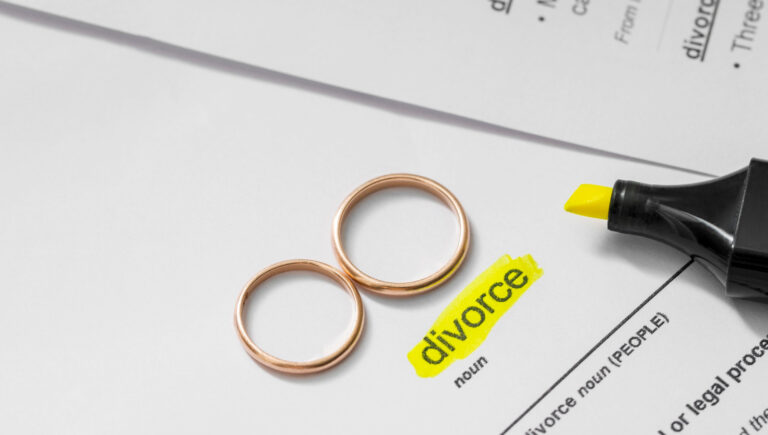
As experienced divorce lawyers at JeffMcKnightLaw, we often get asked, “How long do you have to be separated before divorce?” Many couples facing this situation feel overwhelmed and uncertain about the legal requirements. In this article, we’ll break down the separation period laws, as they can vary from state to state. We’ll provide clear and straightforward answers to help you understand your options and make informed decisions during this challenging time.
From the point of view of Justia.com, the required separation time before divorce varies by state. Some states require no separation period, while others may require up to two years. For specifics, consult your state’s laws on divorce.
Introduction to Divorce Separation Periods
Divorce separation periods are intriguing as they represent the legally mandated time a couple must spend apart before finalizing their divorce.
In general, this period gives the couple time apart to think about their decision to end their marriage. During this time, they may live separately and start dividing their possessions and finances. How long this period lasts depends on the state’s or country’s laws, ranging from a few months to several years.
During this time, the couple might seek counseling to try to work through their issues. They might also use this period to agree on the terms of their divorce, like child custody, financial support, and dividing property. When it comes down to it, some couples use mediation or collaborative approaches to make the process smoother.
State Laws on Divorce Separation
State laws on divorce separation can differ widely from one state to another.
When it comes down to it, some states require you to be separated for a while before getting a divorce, while others don’t. The length of this separation time can vary from state to state.
During a legal separation, things like dividing money and debts, deciding child custody and support, and setting up spousal support can be handled. Every state has its own rules for how these issues are managed.
Essentially speaking, in some places, legal separation is the first step towards divorce, eventually ending the marriage. In other places, it can help couples keep some legal protections while they try to work things out.
It’s important to know the laws about separation and divorce in your state to protect yourself and ensure things are fair. Talking to a lawyer who knows family law in your area can help you understand the process and make smart choices.
Conditions Affecting Separation Time
Separation time between individuals can be significantly influenced by factors like emotional connection, environmental conditions, and social dynamics.
Essentially the time it takes for people to separate can depend on several things:
- Emotional Attachment: If they have strong feelings for each other, it can be harder and take longer to part ways.
- Unresolved Issues: Ongoing fights or unresolved problems in the relationship can create tension and make it tough to move on.
- External Factors: Things like sharing money or living space can make separating more complicated and take more time.
- Communication and Cooperation: If they don’t talk to each other or work together well, this can cause delays in making decisions and finishing the separation.
In simple terms, the process of separating is influenced by how emotionally attached they are, if there are any unresolved conflicts, external factors such as finances and living arrangements, and how well they communicate and cooperate.
Exemptions to Standard Separation Periods
Certain scenarios allow for deviations from standard separation periods.
Exemptions from the standard waiting period for separation are usually granted in cases of abuse, abandonment, or other urgent issues that need quick action to protect those involved. For instance, if someone is being abused, their safety could be at risk if the waiting period isn’t skipped. Similarly, in cases of abandonment, waiting might cause unnecessary delays for people who need a solution fast. Other urgent needs, like financial problems, may also qualify for an exemption. By and large, these exemptions are considered individually and often require proof to support the request. People asking for an exemption should ensure they provide all necessary information and follow the steps set by the authorities. Ignoring these steps could result in their request being denied.
Exemptions are intended to deal with specific situations that need a faster resolution than usual, ensuring that those involved get timely and appropriate help.

Next Steps After Separation Period
After a separation period, exploring one’s emotional health and seeking support can significantly accelerate personal growth and resilience.
Let me explain, talk to your ex about how to split your stuff, work out childcare, and handle any legal issues. Make sure to think about what’s best for the kids and keep the lines of communication open to make things go smoothly. Take some time to think about the past relationship to understand it better and improve for the future.
Predominantly it might help to see a counselor or therapist to deal with your emotions. Plan your next steps, set personal goals, and lean on friends and family for support. Focus on taking care of yourself both physically and mentally. Healing will take time, so be patient with yourself and take it one step at a time. Stay positive and hopeful, as this tough period can bring personal growth and new chances.
Verdict
The length of time required for legal separation before divorce varies depending on the state in which you reside.
What JeffMcKnightLaw is urging you to look at is, some states mandate a specific period of separation, while others do not have any set timeframe. It is important to consult with a legal professional to understand the specific laws and requirements in your jurisdiction.






